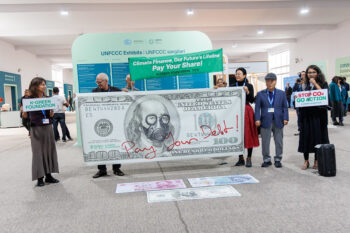Sylvan Lutz

Sylvan is an Analyst (Policy Officer) working at the TPI Global Climate Transition Centre (TPI Centre). As part of the ASCOR team (Assessing Sovereign Related Climate Opportunities and Risk), he researches national emissions trends, climate legislation, climate finance and renewable energy with a focus on automating data collection and analysis.
Background
Before joining the Grantham Institute Sylvan worked as a researcher at the Intergenerational Foundation (UK) where he led the development of a tool to improve long-term decision-making/risk analysis for a UK County Council. At the Institute for Fiscal Studies and Democracy (Canada), he worked with government clients to assess and improve Canadian climate, transportation, and First Nations housing policy. Sylvan also spent four years working in the Canadian House of Commons and volunteers as a coordinator with the Global Pact Coalition (a part of the coalition that won the 2023 UN Human Rights Prize) which advocates for the adoption of the Right to a Healthy Enviornment in international and national laws.
Sylvan holds a BSS. Joint Honours in Economics and Political Science (Suma Cum Laude) from the University of Ottawa and a double MSc. in Environmental Technology, Policy and Health (Environmental Economics and Climate Change) from Peking University (Excellence)and the London School of Economics (Distinction). His MSc. research examined the impact of different mitigation incentives (positive and negative) in fossil fuel exporting regions and the transportation sector in British Columbia using integrated assessment models and econometrics. He also holds a Certificate of Social Science and Humanities from Sciences Po Paris.
Research Interests
- Mitigation Incentives
- Mobilisation of Climate Finance
- Just Transition
News
News - 2024
The TPI Centre's Sylvan Lutz and Camila Cristancho Duarte highlight the urgent need for the New Collective Quantified Goal, under discussion at COP29, to establish clear standards, accountability and transparency to bridge the climate finance gap in developing countries. Read more


